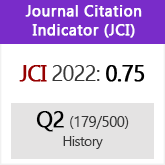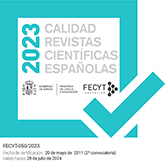Humanismo clasicista mediterráneo y concepción antropológica del mundo: el caso de los jesuitas
DOI:
https://doi.org/10.3989/hispania.1996.v56.i192.749Keywords:
Cultural Anthropology, History of Sciences, Renaissance, Jesuits, Missions, Early Modern Spain, Mediterranean Sea, America.Abstract
The aim of this article is to reconsider the role played by the jesuits in the history of science in Early Modern Spain, with special attention to their contribution to linguistics and etnograhpy. The jesuits have been chosen for testing the new theories made in the last quarter of our century on the scientific importance of the classical humanisme, borned in the mediterranean Europe but extended all over the world afterwards. This hypothesis is particularly correct regarding those disciplines, because it seems that the arising of the European conscience on other languages and cultures —with similar dignity, though not being mediterranean origin— was a modern «invention» and not a classical heritage.
Downloads
Download data is not yet available.
Downloads
Published
1996-04-30
How to Cite
del Pino, F. (1996). Humanismo clasicista mediterráneo y concepción antropológica del mundo: el caso de los jesuitas. Hispania, 56(192), 29–50. https://doi.org/10.3989/hispania.1996.v56.i192.749
Issue
Section
Monographies
License
Copyright (c) 2019 Consejo Superior de Investigaciones Científicas (CSIC)

This work is licensed under a Creative Commons Attribution 4.0 International License.
© CSIC. Manuscripts published in both the printed and online versions of this Journal are the property of Consejo Superior de Investigaciones Científicas, and quoting this source is a requirement for any partial or full reproduction.All contents of this electronic edition, except where otherwise noted, are distributed under a “Creative Commons Attribution 4.0 International” (CC BY 4.0) License. You may read here the basic information and the legal text of the license. The indication of the CC BY 4.0 License must be expressly stated in this way when necessary.
Self-archiving in repositories, personal webpages or similar, of any version other than the published by the Editor, is not allowed.














